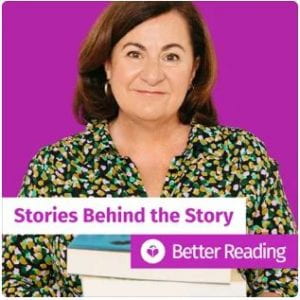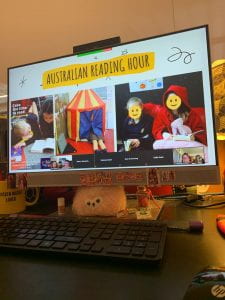What I have enjoyed about this subject is that it made me critically think about programs and services for children and young adults in a public library setting. From my experience working within both a school library and now a public library it is important that as librarians we are constantly working on both the collections and the programming to suit the needs of the community we serve. By working through this subject, it has shown me that one of the most important roles that we will have as a librarian is to understand that it is our job to never stop learning and responding to the world around us. The library profession is dynamic, diverse, and broad and it is essential that librarians have these skills and knowledge to confidently respond to the needs that present themselves for future practice. Librarians are in a position to positively impact the patrons that come into the space, and this can happen with ongoing professional development (Stephens, Partridge, Davis & Snyder, 2022, p.258).
The area of this assignment that I enjoyed specifically was going through and reading the other students’ thoughts on the topic areas that we were asked to focus on. Not only do we need to think about our own learning and how we can do that in a formal way, but we can also grow from our colleagues around us. Something that stuck out when I was looking through the blogs was that everyone chose different activities from the next person. Everyone has their own way of viewing certain ides and it allowed me to widen my ideas and think about how I can change certain areas of practice in my own library.
Professional development is about constantly learning and not becoming stagnant in our profession. The information industry is always evolving with new developments in technology, to changing perspectives on current events and responding to the needs of the community you serve. Being a librarian can feel like an overwhelming job with many mountains to climb, finishing one project and moving onto the next, however by being proactive and undertaking professional development activities as simple as listening to a podcast on diversity then it can help you in the long run. The ability to access e-learning courses, tutorials and webinars has enabled learning opportunities to happen whenever and wherever possible. Professional development has grown beyond formal sit-down learning to looking beyond the workplace, from social networks, reading clubs and participation in specialised groups (IFLA, 2016, p.27).
This subject has allowed me to expand my knowledge through both assignments but also to learn through my fellow students. It has allowed me to further think about certain areas of the services I would like to provide to my community, and I can plan them better to ensure I am making the program the best I can. I am very happy that this is my final subject as I have really reflected on how I can become the best librarian I can be.
Word Count: 502
References
IFLA. (2016). IFLA Guidelines for Continuing Professional Development: Principles and Best Practices. https://www.ifla.org/wp-content/uploads/2019/05/assets/cpdwl/guidelines/ifla-guidelines-for-continuing-professional-development.pdf
Stephens, M., Partridge, H., Davis, K. & Snyder, M. (2022). The strategic, curious & skeptical learner: Australian public librarians and professional learning experiences. Public Library Quarterly, 41(3), 257-272. https://doi.org/10.1080/01616846.2021.1893114


